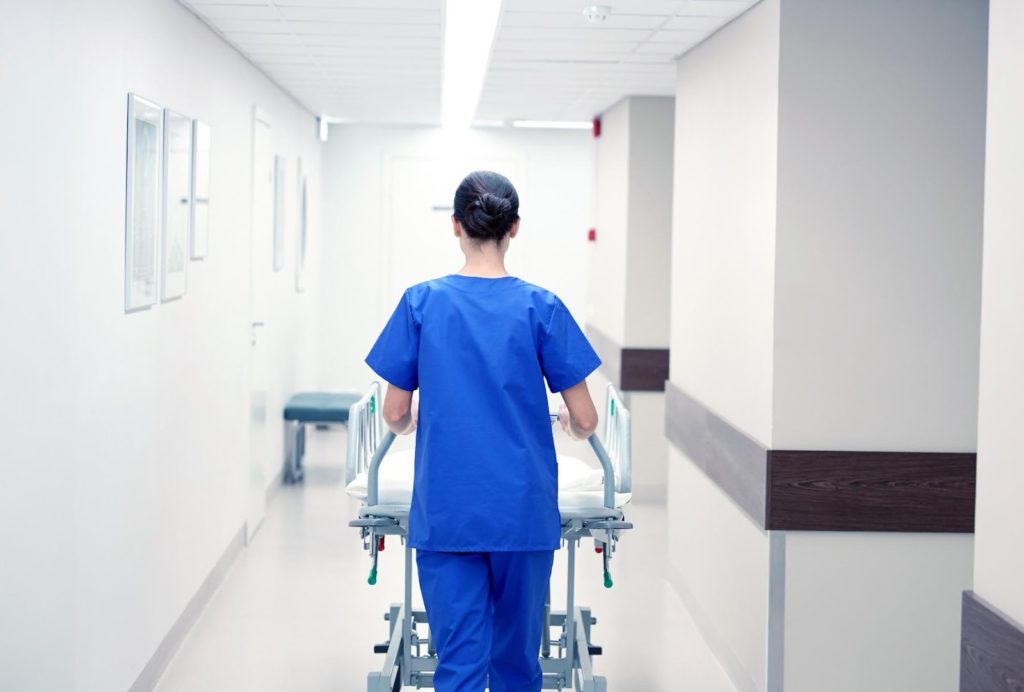Varicose Veins Among Nurses and Other High-Risk Occupations
Nurses represent a large section of the healthcare workforce. In the year 2020, our healthcare workers were suddenly catapulted into the spotlight as they worked the frontlines of the dangerous and capricious pandemic that wreaked havoc in so much of our society.
Nurses and doctors have always done heroic work. The nature of these demanding jobs will have consequences on people that are not always discussed. Because nurses and many other healthcare professionals work in 12-hour shifts and often stand up for much—if not all—of their shift, many are often predisposed to conditions like varicose and spider veins.
A day in the life of a nurse working in a clinic, hospital, or other medical facility requires a lot of standing and walking without a lot of time to rest. Varicose veins are no fun and can lead to discomfort and pain when walking or standing too long. For some people, it may even disrupt their active lifestyle.
As John Hopkins school of medicine suggests, sitting or standing for long periods—over prolonged time—can be detrimental to circulatory health. It can cause blood to pool in the leg veins. This increases the pressure within the veins and the veins stretch from increased pressure. As time goes on, the valves in the veins will become weaker and affect the ability of blood to flow properly.
What are the Main Symptoms of Chronic Venous Insufficiency
If you are a nurse or healthcare worker who stands for long periods of time and you’ve noticed some discomfort or visible symptoms in your legs, it is best to seek the advice of a vein doctor. Early diagnosis can prevent complications or worsen the condition. Even careful monitoring can make sure that the problem does not progress too quickly, and your doctor can recommend the best course of action.
Common symptoms include:
- Swelling in lower legs and ankles
- Aching and tired legs
- New appearing varicose or spider veins
- Flaking or itchy skin
- Skin that has a leathery look to it
- Stasis ulcers
Tips for Nurses and Others in High-Risk Professions
Even if you are working these long shifts, there are a few things to know about what you can do to help mitigate the problem.
- Avoiding standing in one position too long. If at all possible try to move around a little bit instead of standing still. Also, avoid locking your knees when you are standing.
- Raise your feet. After a long day or a long shift, consider elevating your legs. Take a pillow and lay down with your feet slightly elevated. This can provide some relief.
- Watch your alcohol and salt intake. Dehydration only adds to the risk. Make sure to stay hydrated and avoid water retention often caused by salt.
- Wear compression socks. Compression socks are a great first line of defense for some of these varicose veins. They help support circulation and help with soreness.
The Hereditary Factor: Are You at Higher Risk?
Studies suggest that there is a strong genetic component. While the precise changes of hereditary are not well known, having a family member that suffers from problems with circulation and varicose veins will make you more susceptible to this condition.
According to the National Institute of Health (NCBI), chronic venous disease is one of the most underrated conditions in the United States. This is because around 40% of people in the United States have some degree of venous insufficiency. The NCBI observes that mutations in the gene human forkhead box (FoxC2) gene is associated with valve failure in saphenous and deep veins of lower extremities.
The main risk factors that contribute to the progression of venous disease include sex, pregnancy, family history, and lifestyle factors such as standing or sitting for extended periods of time.
Other Occupations With Higher Risk of Varicose Veins
Nurses and physicians are not the only ones who are at higher risk of varicose veins. Other professions have been known to increase the risk for venous insufficiency and cause spider veins or varicose veins. These professions include:
Hairdressers: Workers who work in hair salons or barbershops will often encounter a higher chance of varicose veins due to the long hours of standing. In many instances, these workers are not even walking or moving around but rather standing for long periods of time with minimal movement.
Educators: Teachers who stand in front of the classroom for 8-9 hours a day can also suffer from venous insufficiency. Although these workers tend to get a little more of a break throughout the day, they also suffer from discomfort from standing for a long time.
Bartending or serving: Restaurant workers are no strangers to standing for long periods of time. For many who work long shifts and for those who are in the industry of bartending or food service, standing for long periods can be a common occurrence. These professions also have high instances of venous disease.
Worried About Your Vein and Circulatory Health? Call EP Varicose Veins!
EP Varicose Veins are the leading specialist in venous disease in the El Paso area. We serve the southwest region with state-of-the-art care for vein insufficiency, varicose veins, and other related conditions. If you are a nurse or healthcare worker that stands for a long time and notice your legs feeling heavy or tired, give us a call!

